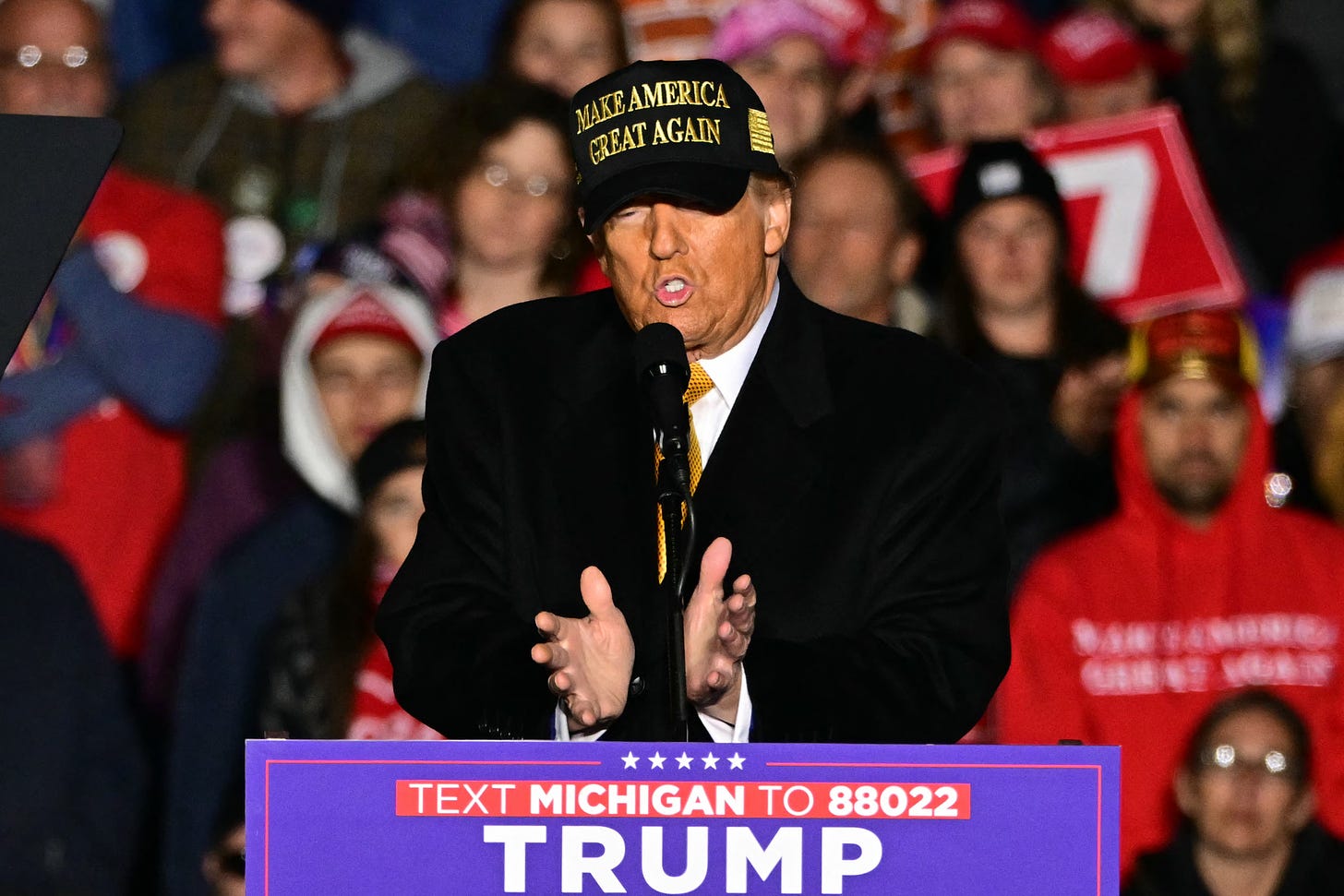
Jack Smith Should Be Investigating Trump’s Current Election Conduct
It would not just be justified, it would be prudent.

WE’VE BEEN HERE BEFORE. The pre-election public record is full of clues—flashing red lights, really—that Donald Trump is preparing to try to steal the vote again if he loses. The Justice Department should be investigating it now.
Any legitimate, fact-based court challenges to particular vote counts are not the problem. The alarm arises from the ominous indications that Trump will try to gum up the works at every stage of vote counting, state-by-state Electoral College meetings, and election certifications.
The apparent end game is to create enough chaos to prevent Congress from certifying any Harris–Walz victory. Hanging over it is the potential for violence both around the country and—in a January 6th redux—at the Capitol. Threats against election officials have already intensified.
There is a reported factual basis sufficient to justify the FBI opening a preliminary investigation into the potential for brazen election interference. When adequate “predication” exists, DOJ rules authorize investigators to begin their work before suspected crimes reach fruition. Gathering evidence before it disappears or before memories fade is sound investigative methodology.
Under the attorney general’s Guidelines for Domestic FBI Operations, a preliminary investigation may begin based on information indicating that “[a]n activity constituting a federal crime or a threat to the national security . . . may be occurring, or . . . may occur [in the future].” The purpose of a preliminary investigation is to “detect, obtain information about, or prevent or protect against federal crimes.”
Under the guidelines, any such inquiry that involves a political candidate is deemed “sensitive”—hence the highest levels of the Justice Department, sometimes including the National Security Division, must be notified and must approve.
Consistent with DOJ’s election sensitivity policy, a new investigation would not be announced before Election Day to avoid the 2024 version of 2016’s Jim Comey catastrophe. Nonetheless, should news of the investigation leak, it would likely spark immense political blowback from the ex-president and his supporters, who will howl that the current administration is the one orchestrating the “interference.”
But the pursuit of justice can’t bend to political pressures. And there is a powerful predicate for DOJ to act.
Start with the context. Trump has done it before. Just look at the House January 6th Committee’s compelling evidence. Or consider the two D.C. grand jury indictments, which found probable cause to believe that Trump criminally conspired after November 2020 to defraud the United States by impairing its legal functions and to violate the civil rights of the majority of Americans.
Or reflect on what’s happening now as Trump refuses to say he would accept the 2024 election results, just as he did before the last election. There are cascading indicia of a much better organized effort by Trump and his team this time. The Republican National Committee, co-headed by the ex-president’s daughter-in-law Lara Trump, is expressly fielding an army of “poll watchers” targeting cities with majorities of Democratic voters. Last election, such “poll watchers” overwhelmed Detroit’s vote count center, among others, and harassed the mostly black election workers there.
Then we have a growing band of election denialists occupying local and state election boards. Any student of political organizing understands that aberrant election officials popping up systematically in separate locations does not happen spontaneously. In all, Trump’s GOP has recruited more than a dozen of last election’s fake electors to serve as electors this time around. Former Acting Solicitor General Neal Katyal put it succinctly last week:
The rogues are no longer amateurs. They have spent the last four years going pro, meticulously devising a strategy across multiple fronts . . . to overturn any close election.
Special Counsel Jack Smith would be well positioned to address any efforts by Trump to “steal the election 2.0,” given Smith’s experience investigating 2020 election crimes. The special counsel’s current mandate already includes investigating “efforts to interfere with the lawful transfer of power following the 2020 presidential election . . . as well as any matters that arose or might arise directly from this investigation.”
Prudence would justify an express expansion of the special counsel’s mandate in a directive from the attorney general, as contemplated by DOJ regulations.
Finally, there’s a legal reality that Smith knows well. If Donald Trump loses the election, and if there are grounds to believe that he has committed another round of election-related crimes, a subsequent prosecution could proceed far more expeditiously than the current one. After all, as to criminal misconduct in 2024, Trump would get no cloak of presidential immunity fashioned by John Roberts’s Court, as he received for his 2020-election schemes. For any efforts to steal the 2024 election, private citizen and candidate Trump would have to face justice based on the facts and the law. This time, Trump is acting at his peril.
Donald B. Ayer served as deputy attorney general under George H.W. Bush and principal deputy solicitor general in the Reagan administration.
Philip Allen Lacovara is a former deputy solicitor general of the United States for criminal and national security matters, former counsel to the Watergate special prosecutor, and former president of the District of Columbia Bar.
Dennis Aftergut is a former federal prosecutor, currently of counsel to Lawyers Defending American Democracy.




















